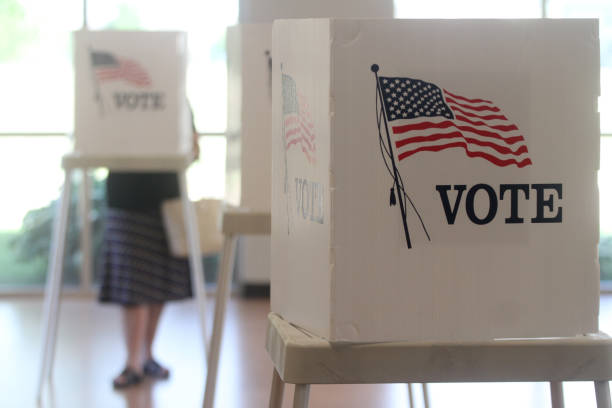The upcoming 2024 election could prove pivotal for the U.S. blockchain and cryptocurrency industry, especially with Kamala Harris now leading the Democratic ticket. Her rise to the forefront brings potential for a shift in how the U.S. approaches blockchain regulation, a change that many crypto traders and innovators have been eagerly awaiting.
For years, the crypto industry has been stifled by unclear and overly aggressive regulations. These regulations have not only slowed innovation but have driven investment out of the U.S., forcing entrepreneurs to seek more favorable environments overseas. Now, as Harris steps into a more prominent role, there’s hope that her administration might provide the much-needed clarity and support that could turn the U.S. into a global leader in blockchain technology.
The overturning of the “Chevron Doctrine,” a 40-year-old legal principle that allowed regulatory agencies broad power, marks a significant moment for investors. This change is seen as a step towards creating more consistent and transparent rules, reducing the chaotic regulatory environment that has plagued the industry for years. In this landscape, Harris’s role becomes even more crucial, as she could be the voice to steer U.S. regulation towards fostering innovation rather than stifling it.
There is, however, skepticism. Harris’s history of aligning with progressive economic policies has some wondering if she is truly ready to embrace the needs of the crypto industry. During her earlier campaigns, she echoed sentiments about corporate greed and regulatory control, which raised concerns among free-market advocates. But these are different times, and Harris no longer needs to compete with left-leaning figures like Elizabeth Warren or Bernie Sanders. Instead, she faces a different political landscape, where even her own party is beginning to see the benefits of supporting blockchain and crypto innovation.
The Democratic Party has started to shift its stance. Rising figures like Ro Khanna and Ritchie Torres have joined forces with Senate Majority Leader Chuck Schumer, advocating for clearer and more supportive crypto regulations. They’ve even formed a group, “Crypto4Harris,” signaling their intent to bring Harris on board with the growing movement to legitimize and foster the blockchain economy. This movement is gaining momentum, and if Harris signals her support, it could lead to a bipartisan breakthrough on crypto regulation by the end of the year.
For crypto traders, this is a potential game-changer. The future of cryptocurrency in the U.S. may depend on the next four years, and Harris’s stance on these issues could tip the balance. If the U.S. creates a welcoming environment for blockchain and crypto development, the innovation that follows could be monumental, making the country a hub for cutting-edge technology and economic growth. But without clear regulatory rules, the crypto world may continue to face hurdles, keeping it from reaching its full potential.
As Harris prepares for the Democratic Convention, the crypto community watches closely. Her actions in the coming months could either signal a new dawn for blockchain in the U.S. or more of the same regulatory confusion. Crypto traders are hoping for the former — a future where innovation is embraced, and the U.S. takes its rightful place as a leader in blockchain technology.


